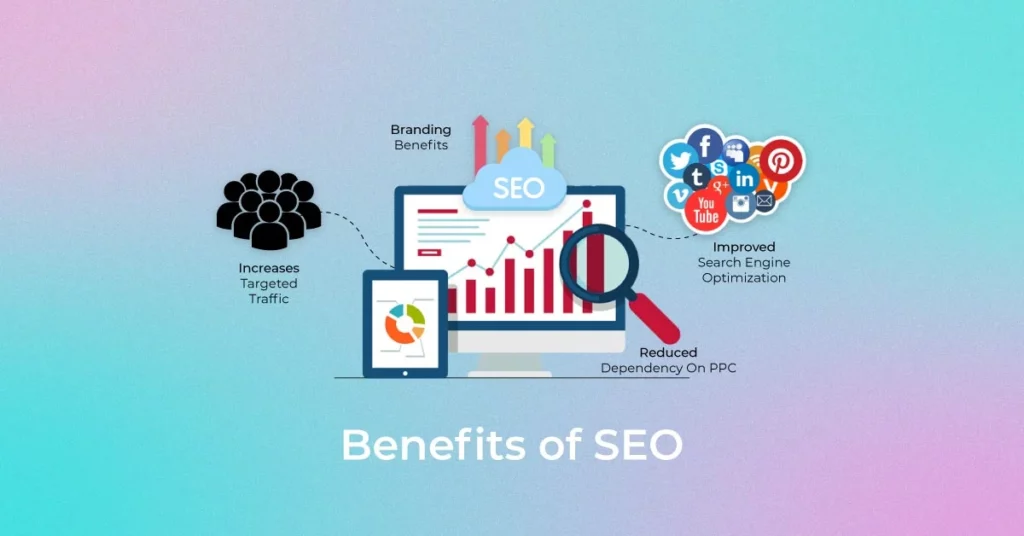
Many businesses today overlook the significance of having a website, not realizing that it is a crucial tool for success in the modern digital landscape. With consumer behavior shifting towards online searches and information gathering, a website is no longer just an option but a necessity. It serves as a platform to showcase offerings, build credibility, attract customers, and generate leads. In a world where 97% of people learn about local companies through the Internet, having a website is a strategic move towards growth and visibility. Let’s research into the top reasons why your business must have a website to thrive in today’s competitive market.
Key Takeaways:
1. Essential for business credibility and customer expectations.
2. Enables maximum ROI with lead generation and sales opportunities.
3. Control brand narrative, showcase offers, and create social proof.
4. Compete with industry giants and reach a global audience.
5. Allows for constructive conversations and expands working hours.
6. Overcomes social media limitations, boosts online presence, attracts leads.
Building Credibility and Trust
Assuming Does My Business Need a Website? 12 Reasons Why & 5 …
The Power of Professional Web Design
One of the key elements of building credibility and trust through your website is professional web design. A well-designed website reflects positively on your business, conveying a sense of professionalism and attention to detail. In fact, studies have shown that 75% of online users judge a company’s credibility based on its website design. By investing in a professionally designed website, you not only enhance your brand image but also make a great first impression on potential customers.
Showcasing Testimonials and Certifications
Trust is a crucial factor in business success, and showcasing testimonials and certifications on your website is a powerful way to build trust with your audience. Customer testimonials and industry certifications provide social proof of your credibility and reliability, making it easier for potential customers to trust your business. According to data, 97% of people learn more about a local company via the Internet. By prominently displaying testimonials and certifications on your website, you reassure visitors of your expertise and quality, ultimately boosting credibility and encouraging leads to convert into customers.
Enhancing User Engagement
Offering Value Through Content
One of the most effective ways to enhance user engagement on your website is by offering valuable content. By creating informative blog posts, engaging videos, and helpful guides related to your business niche, you can attract and retain visitors. Providing relevant and high-quality content not only helps in establishing your expertise but also keeps users coming back for more. This not only improves user engagement but also helps in building a loyal customer base over time.
Strategies for Interactive Design and Features
Any business looking to boost user engagement on their website should consider implementing interactive design elements and features. Features like chatbots for instant customer support, interactive quizzes for user engagement, and personalized product recommendations can keep visitors on your site longer and encourage them to take action. Incorporating videos, infographics, and interactive tools can make the user experience more enjoyable, leading to increased time spent on your site and higher conversion rates.
For instance, studies show that websites with interactive features have a 70% longer average session duration compared to those without. By incorporating such strategies, businesses can significantly enhance user engagement, generate more leads, and ultimately increase conversions.
Expanding Market Reach
SEO Benefits and Global Access

On the digital landscape, having a website means leveraging search engine optimization (SEO) to reach a wider audience. With 5.6 billion Google searches daily, a well-optimized website can significantly increase visibility and attract potential customers globally. By implementing SEO strategies, businesses can enhance their online presence, drive organic traffic, and ultimately expand their market reach.
Social Media Integration and Cross-Platform Marketing

Benefits of social media integration and cross-platform marketing are immense for businesses with websites. Social media platforms provide additional avenues to engage with customers, drive traffic to the website, and enhance brand visibility. Integrating social media into the website creates a seamless user experience, improves brand recognition, and allows for targeted marketing campaigns across multiple platforms. Social media integration complements the website’s SEO efforts by boosting online presence and attracting quality leads.
Maximizing Business Operations
In today’s digital age, a website is crucial for businesses looking to maximize their operations, reach their target audience, and stay competitive. By leveraging the power of a well-designed website, businesses can enhance their e-commerce capabilities, provide 24/7 customer service, automate processes, and improve overall efficiency.
E-commerce Capabilities and 24/7 Service

One of the key benefits of having a website for your business is the ability to boost your e-commerce capabilities and provide round-the-clock service to your customers. With an online store integrated into your website, you can reach a broader audience, offer convenience, and drive sales even outside regular business hours. This feature is particularly critical in today’s digital landscape, where customers expect instant access to products and services.
Automation and Efficient Customer Support

Service automation is a game-changer in modern business operations. By leveraging technologies such as chatbots, automated emails, and CRM systems, businesses can streamline customer support processes, enhance responsiveness, and improve overall customer experience. Understanding the importance of efficient customer support not only boosts customer satisfaction but also helps in retaining customers, driving repeat business, and generating positive word-of-mouth referrals. Automation plays a crucial role in optimizing business operations and ensuring seamless interactions with customers.
Analyzing and Adapting
Utilizing Analytics for Business Growth
For any business looking to thrive in today’s digital age, utilizing analytics is crucial for understanding customer behavior, optimizing marketing strategies, and driving business growth. By analyzing data from website traffic, social media engagement, and email marketing campaigns, businesses can gain valuable insights into customer preferences and trends. This data-driven approach enables businesses to make informed decisions, tailor their offerings to meet customer needs, and ultimately drive more leads and conversions.
Responsive Adaptation to Market Trends
An imperative aspect of business success is the ability to adapt to evolving market trends quickly and effectively. It’s imperative for businesses to stay responsive to changing customer preferences, technological advancements, and industry shifts. By staying agile and proactive, businesses can capitalize on emerging opportunities, mitigate risks, and stay ahead of the competition. Adapting to market trends not only ensures relevance and competitiveness but also fosters long-term success and growth in the ever-changing business landscape.
It is crucial for businesses to monitor market trends, consumer behavior, and industry developments closely. By staying attuned to these changes, businesses can proactively adjust their strategies, products, and services to meet evolving demands and stay ahead of the curve.
Conclusion
Presently, having a website is a must-have for business success. A website is not just a digital storefront; it’s a powerful tool that helps businesses connect with their customers, generate leads, showcase their offerings, and establish credibility. In a world where consumer behavior is increasingly influenced by online presence, a well-designed and optimized website is crucial for staying competitive and reaching a broader audience. By investing in a website, businesses can maximize their ROI, control their brand narrative, compete with industry giants, and expand their working hours. In today’s digital landscape, the price of being left behind without a website far outweighs the benefits of having one. So, take action now, build a website, and position your business for success in the digital age.











